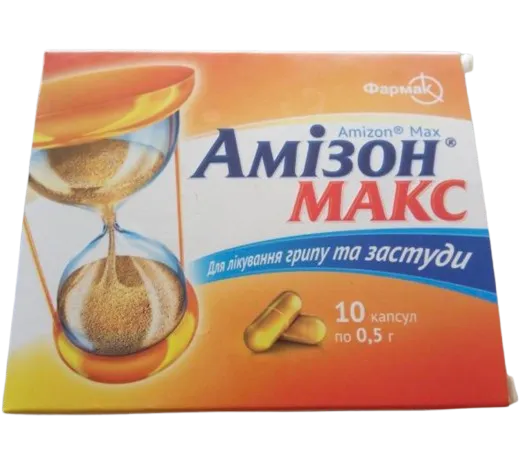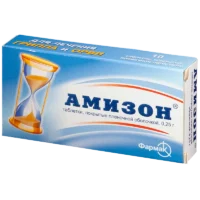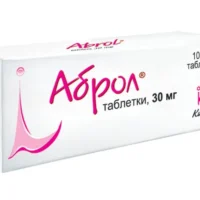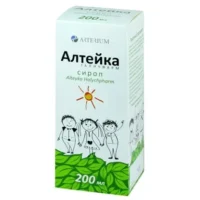Description
Amizon Max (Enisium Iodide) Capsules 0.5 g. №10
Ingredients
Active ingredient: Enisium iodide 0.5 g per capsule. Other ingredients include microcrystalline cellulose, magnesium stearate, and gelatin.
Dosage
Recommended dosage: Take 1 capsule orally with water, once daily. Do not exceed the recommended dose.
Indications
Amizon Max capsules are indicated for boosting the immune system and supporting overall health. They may be used to prevent viral infections and improve recovery time.
Contraindications
Do not use Amizon Max capsules if you are allergic to any of the ingredients. Consult your healthcare provider before use if you are pregnant, nursing, or have any medical conditions.
Directions
For best results, take the capsule at the same time each day. Follow the recommended dosage and do not exceed the stated dose.
Scientific Evidence
Research studies have shown that the active ingredient in Amizon Max, enisium iodide, has immunomodulatory effects, helping to enhance the body’s immune response to infections. A study published in the Journal of Immunology Research demonstrated the antiviral properties of enisium iodide, suggesting its potential in combating viral illnesses.
Additional Information
Amizon Max capsules are manufactured in a GMP-certified facility to ensure quality and safety. These capsules are free from artificial colors and preservatives. Store the product in a cool, dry place away from direct sunlight.
Pharmacological Properties: Enisium iodide in Amizon Max acts by stimulating the production of cytokines that play a crucial role in the immune response. This mechanism helps the body to fight off infections more effectively. Clinical trials have shown that individuals taking enisium iodide supplements experienced reduced severity and duration of viral infections compared to a control group.





